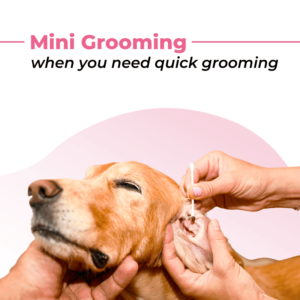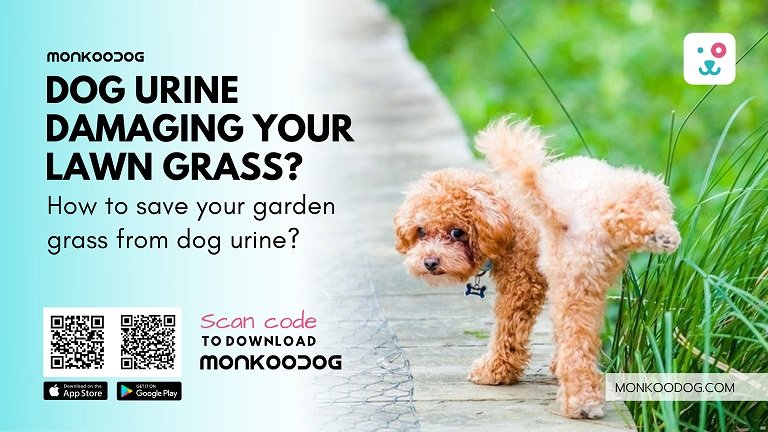
Home » Mega Guide to Stop Dog Urine from Damaging Your Grass
Is Dog peeing in your backyard such a big deal? Can dog urine damage the grass in your backyard?
Betty Mcguire, a researcher and senior lecturer at the Department of Ecology and Evolutionary Biology at Cornell University, is no stranger to dog urine. If you live with a dog, I’m guessing your dog’s pee story is one of the most interesting.
Mcguire’s research looks at the complex amalgam of dog aspects like age, sex, reproduction status, height, and body size that strongly contribute to how or when a dog pees.
Dog’s urine is naturally rich in nitrogen which means higher concentrations can cause your precious lawn to get damaged and burn out. The nitrogen level in your dog can depend upon a few factors, including breed, gender, and eating pattern in their daily life.
Larger breeds will often urinate more frequently in the same spot, causing more damage; urine pH levels can destroy your lawn grass’s health. But don’t worry; you can stop your dog’s habit of peeing on the lawn and help them develop a strict practice of controlling and urinating at a designated place.
Are you ready to uncover the secrets?
Let’s start with the basics!
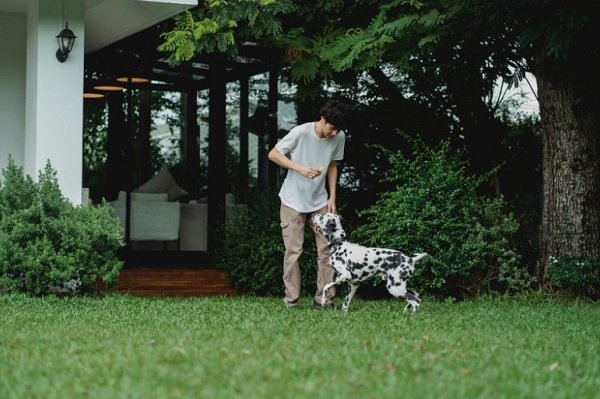
House training your dog or puppy requires a massive amount of patience, commitment, and consistent training. Many accidents are a part of the process, but if you follow these simple steps, you’ll train your dog how not to pee anywhere on the planet…
When you cannot keep a watch on your dog all the time, restrict them to an area small enough that they wouldn’t want to take a leak over there.
The space should be comfortable for them to stand, lie down, sleep and turn around. You can use a portion of a bathroom or laundry room blocked off with the help of baby gates.
You may also want to crate train your dog; however, if your dog has spent several hours in confinement, you’ll need to take them directly to the bathroom spot as soon as you return.
If you plan to step out for more than a day, arrange for someone like a responsible neighbor or a professional pet sitter to take care of them and their bathroom breaks.
If you allow your dog to urinate frequently in the house, they’ll get confused about where they are supposed to go when they want to take a leak which will delay the house training process even more.
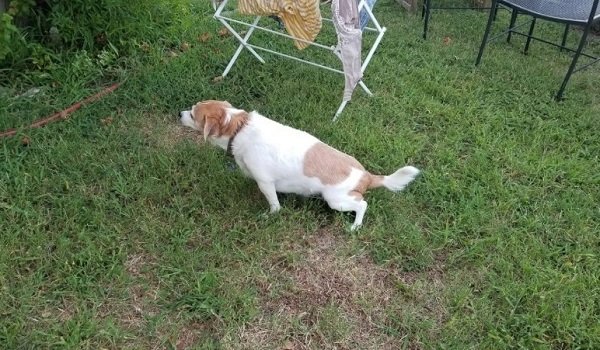
A dog’s urine contains urea, a form of nitrogen that results from digestive proteins. Dogs have a lot of protein in their diets; hence nitrogen exists in their urine. This high nitrogen is absolutely normal and nothing to worry about for any dog owner regarding their pet’s health.
But it’s entirely opposite for your garden. A small amount of nitrogen fertilizes the grass on your lawn, but a large amount of nitrogen is contained in a minimal area (like when your dog pees in the same spot over and over) burns the grass, killing it.
Some people believe that a female dog’s urine cause more trouble to your lawn than a male dog’s urine; however, researchers claim that the composition of the urine doesn’t differ much between a male and a female.
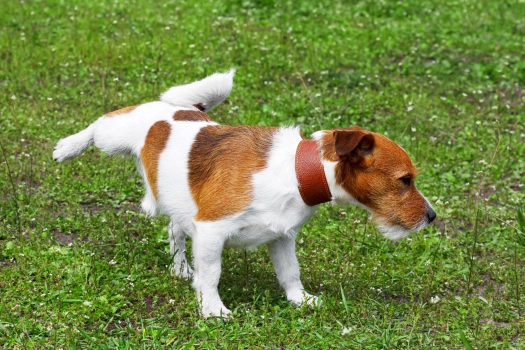
There are specific steps to ensure your dog doesn’t pee on the grass, causing it to have yellow or brown spots. Although there isn’t any guarantee that the urine spots will end, you can always try to minimize the damage.
When your dog urine causes too much nitrogen to get accumulated in one place, you can pour water on it so that the effects of it on the grass will get diluted, and it will magically lessen the damage caused to the lawn by preventing the grass and soil from soaking up too much nitrogen.
Encourage your dog to pee in the same spot by assigning a toilet area away from your lawn and the high-traffic areas. Depending on your comfort, you can either build a small fence around the corner of your garden or get a litter box big enough for your dog to climb.
It’s essential to keep your dog hydrated throughout the day. By consuming more water, your dog’s urine will dilute, resulting in less chance of your grass being damaged from nitrogen and discoloration.
There is also a possibility that you can change your grass to the varieties that are less sensitive to dog urine. While this won’t prevent the long-run damages, it will only ensure that your grass takes longer to show the damages and recovers faster.
Use a lawn repair treatment process to flush out the nitrogen and salts from the grass to enhance root growth. After the procedure, make sure to water the products off the grass for the safety of your pets.
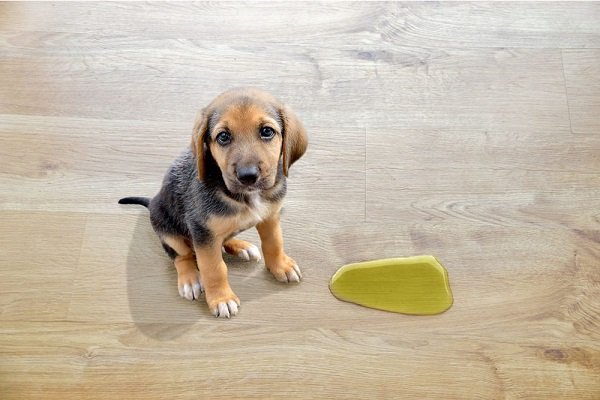
You really don’t have to worry about your grass getting destroyed by your own dog; after all, these little “inconveniences” are a joy of having a furry friend in your family.
Did you find our blog post helpful?
I hope it helps you keep your lawn healthy and have fun with your dog roaming around.

